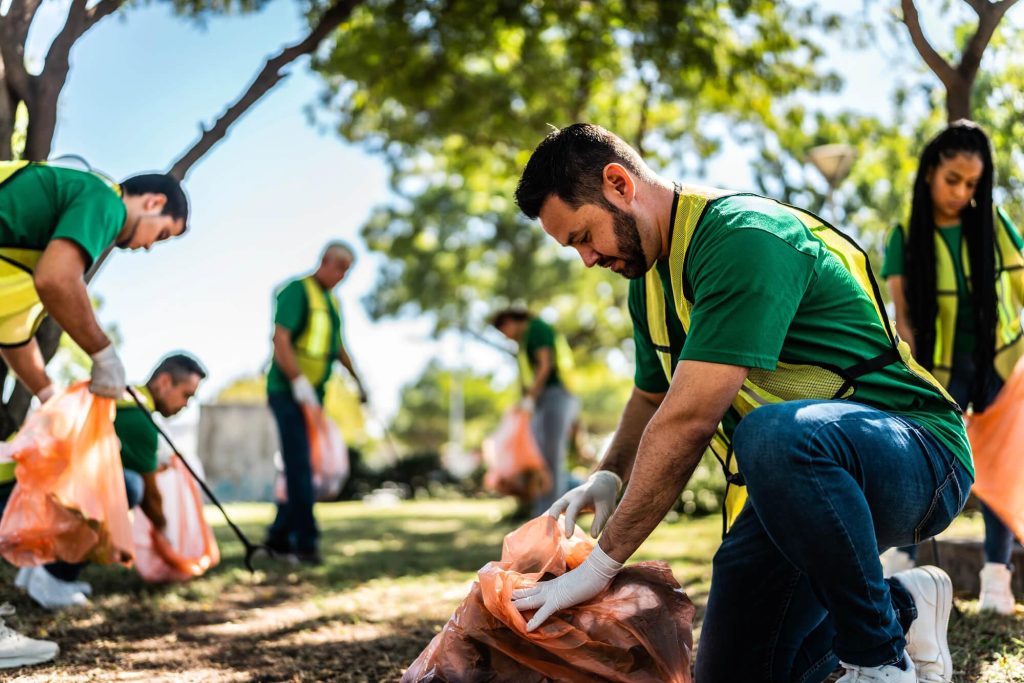Behind every warm greeting, every heartfelt sermon, and every moment of quiet support in a church, there are dedicated staff members who give their all to serve the community. These individuals — whether pastors, administrative teams, or maintenance workers — pour their energy and passion into creating a safe, welcoming space for all. But what happens when those who serve face injuries or unexpected health challenges on the job? Protecting these vital workers through comprehensive workers’ compensation isn’t just a legal necessity; it’s a moral commitment to honor their dedication and safeguard their wellbeing. In this article, we’ll explore why workers’ comp for church staff is so crucial, and how it helps protect those who selflessly protect and uplift us every day.
Table of Contents
- Understanding the Unique Risks Faced by Church Staff and Volunteers
- Navigating the Complexities of Workers’ Compensation in a Faith-Based Setting
- Creating a Supportive Environment Through Comprehensive Coverage and Training
- Empowering Church Leaders to Advocate for Their Team’s Wellbeing and Security
- Wrapping Up
Understanding the Unique Risks Faced by Church Staff and Volunteers
Church staff and volunteers often juggle multiple responsibilities that extend far beyond typical office work. From setting up heavy equipment for events and managing large crowds to providing care during community outreach programs, these individuals regularly face physical and emotional challenges. The inherent unpredictability of these roles means accidents can happen anywhere—from slipping on a wet floor in the fellowship hall to strained injuries from lifting bulky church supplies. Recognizing the vulnerability of those who selflessly serve turns out to be essential in creating a truly safe and supportive environment.
Unlike traditional workplaces, churches carry distinct risks that require careful attention:
- Heavy manual labor during event preparations and cleanups
- Potential exposure to contagious illnesses while serving the community
- Emotional and psychological stress from pastoral or counseling duties
- Unpredictable environments like outdoor services or maintenance tasks
Understanding these factors helps in tailoring workers’ compensation policies that provide not only financial protection but also peace of mind. After all, protecting those who serve ensures that the mission of the church continues with strength and compassion.
Navigating the Complexities of Workers’ Compensation in a Faith-Based Setting
Churches and faith-based organizations operate not just as places of worship, but as vibrant communities where staff members often go above and beyond their formal duties. However, when it comes to workers’ compensation, these unique settings present distinct challenges. Unlike traditional workplaces, staffing roles in churches range from pastoral care to maintenance, each carrying different degrees of risk. Navigating state-specific laws and insurance requirements requires a deep understanding of both legal frameworks and the deeply personal nature of service within these sacred spaces. It’s crucial to ensure insurance policies are tailored to protect ministry leaders, administrative teams, and volunteer staff alike—those who quietly bear the physical and emotional weight of supporting a congregation.
Key considerations include:
- Coverage gaps: Faith-based roles often blur the lines between volunteer and employee, making it essential to define who is covered under workers’ comp policies.
- Custom policy development: Standard commercial policies might not address specific ministerial injuries or long-term care costs related to emotional and spiritual labor.
- Compliance obligations: Churches must navigate state mandates without compromising their mission-driven work, ensuring workers’ compensation aligns with both legal standards and community values.
Protecting those who dedicate themselves to serving others means going beyond the paperwork—it’s about honoring their commitment with safeguards that reflect the depth and diversity of their roles within the faith community.
Creating a Supportive Environment Through Comprehensive Coverage and Training
Ensuring that church staff feel genuinely cared for goes beyond simply offering workers’ compensation. It requires fostering a culture where every team member knows their well-being is a priority. This means providing comprehensive training tailored to the unique challenges faced in ministry work—from safely managing congregational events to handling the emotional strain that often comes with service roles. When staff are equipped with the right knowledge and feel protected by robust coverage, their confidence and sense of security naturally grow, allowing them to focus deeply on their mission.
Creating this nurturing space demands a combination of practical tools and heartfelt support. Churches can implement:
- Regular safety workshops designed to identify and mitigate workplace risks specific to church environments
- Open communication channels that encourage staff to share concerns without fear
- Personalized coverage options that address both common and unique injury scenarios
Such initiatives not only protect those who serve but reinforce a compassionate atmosphere where healing and growth are truly possible.
Empowering Church Leaders to Advocate for Their Team’s Wellbeing and Security
Church leaders are more than just supervisors; they are advocates, protectors, and pillars of strength for their teams. When it comes to ensuring the safety and wellbeing of those who dedicate their time and hearts to ministry work, understanding and supporting workers’ compensation is essential. By embracing this responsibility, leaders can create a sanctuary not only in faith but also in fairness and care. Recognizing the value of every staff member’s contributions means standing firm behind them when they face unexpected injuries or hardships.
Taking proactive steps includes:
- Educating staff about their rights and the support available through workers’ comp
- Implementing safety protocols tailored to church environments
- Providing compassionate guidance when claims arise, ensuring no one feels abandoned
When church leaders champion these efforts, they foster a culture where vulnerability is met with protection, and dedication is honored with security. It’s not just about policies—it’s about people, their peace of mind, and their ability to continue serving with confidence and grace.
Wrapping Up
In the end, protecting those who dedicate their time and hearts to serving our communities is more than just a legal responsibility—it’s a moral one. Church staff often work quietly behind the scenes, offering support, guidance, and care without expectation of recognition. Ensuring they have access to workers’ compensation is a vital step in honoring their contributions and safeguarding their well-being when they face unforeseen challenges. By prioritizing their protection, we not only uphold the spirit of compassion that lies at the heart of every ministry but also build stronger, more resilient faith communities. Because when those who serve are protected, everyone benefits.






